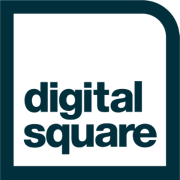Community Health Toolkit
Community Health Toolkit
The Community Health Toolkit (CHT) is a digital public good that supports health workers as they deliver care in reimagined health systems. The CHT includes a collection of open-source software (OSS) frameworks and applications, with resources to help partners design and deploy digital tools (“apps”) for care teams with the support of an active community of collaborators. The CHT is able to support care coordination for antenatal care, postnatal care, non-communicable diseases, immunizations, integrated community case management, and nearly any infectious disease, including TB, HIV, and most recently, COVID-19. The CHT’s modular tools work together as an integrated platform for infectious disease preparedness, surveillance, and response as well as routine community health services, and can be quickly configured for specific partner needs.
Apps built using the CHT Core Framework can support many languages, run offline-first, and work with basic phones (via SMS), smartphones (via Android apps), tablets, and computers. App developers can define health system roles, permissions and reporting hierarchies, and leverage five highly configurable areas of functionality: messaging, task and schedule management, decision support workflows, longitudinal person profiles, and analytics. While frontline teams use apps built on the CHT for doorstep care coordination, managers and decision-makers use tools for performance management of CHWs, continuous program impact monitoring and evaluation, and data-driven resource planning and population health management.
Approach
The CHT is a leading open-source platform for digital health and advanced community health systems. It is the only fully open, human-centered, scalable digital solution that is designed specifically for last mile health delivery. The CHT is a collection of free and open-source technologies; open-access design, technical, and implementer resources; and a community of practice. The Core Framework is able to support care coordination for antenatal care, postnatal care, non-communicable diseases, commodity stock monitoring, immunizations, integrated community case management, and nearly any infectious disease, including TB, HIV, and COVID-19.
The Core Framework of the CHT, developed and maintained by Medic, provides a foundation on which developers can build new workflows, decreasing the time and resources required to build full-featured and ready-to-scale digital health apps, unlocking new opportunities to improve patient care.
The CHT supports approximately 40,000 frontline community health workers (CHWs), CHW supervisors, nurses, and facility-based teams implementing community health systems. While frontline teams use apps built on the CHT for doorstep care coordination, managers and decision-makers use tools for performance management of CHWs, continuous program impact monitoring and evaluation, and data-driven resource planning and population health management.
Implementations
Apps powered by the CHT currently support nearly 40,000 health workers in 15 countries across Africa and Asia (Burundi, Democratic Republic of the Congo, India, Kenya, Malawi, Mali, Nepal, Niger, Philippines, South Africa, Tanzania, Togo, Uganda, and Zimbabwe. To-date, health workers using CHT apps have conducted over 85 million health care activities.
Additionally, Medic partners with Ministries of Health and local governments to design, implement, embed, and scale digital health tools in the national health system with a focus on government adoption and ownership Six governments (Kenya, Mali, Nepal, Niger, Uganda, and Zanzibar) have selected the CHT as a digital community platform of choice, with roadmaps to scale to their collective 350,000 CHWs. Medic and the CHT community are supporting these governments to deploy and scale CHT-based tools alongside public and private implementing and technical partners.
